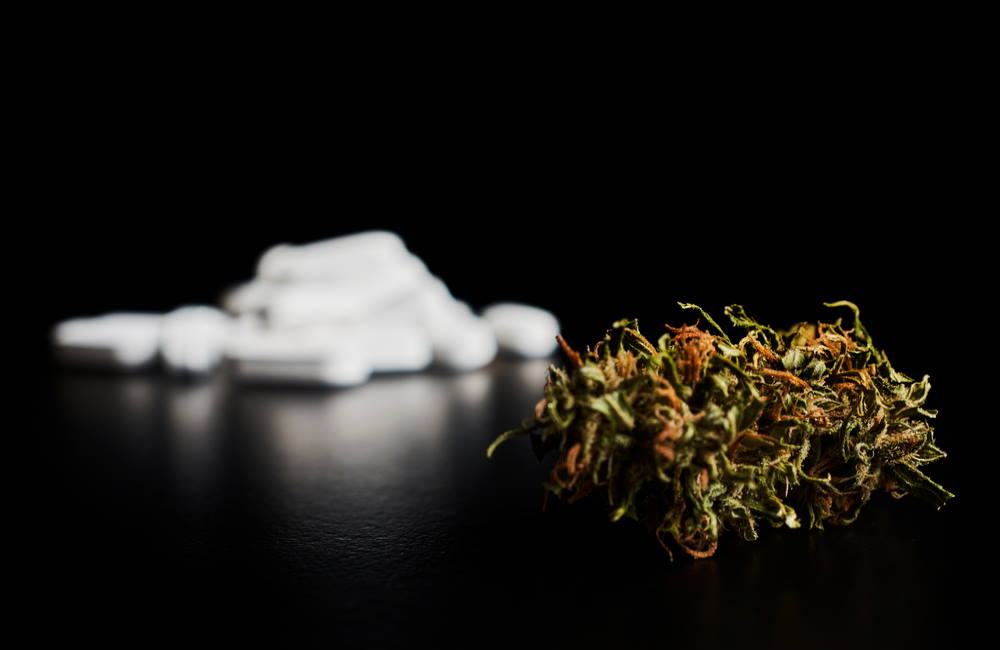People Use Fewer Opioids Where Marijuana Is Legal, New Study Finds
A new study has found that when people have access to either medical or recreational marijuana, they use fewer opioids. Based on analysis of a database that includes data on millions of insured workers, the reduction proved especially higher for middle aged workers.
Researchers from the Harvard Medical School Department of Public Health partnered with researchers from the University of Kentucky’s Martin School of Public Policy and Administration and Institute of Biomedical Informatics on the study.
They found that legal medical marijuana reduced “morphine milligram equivalents” by 7%, while recreational marijuana reduced them by 13%.
The study’s conclusions mirror those from recent research that has reported a reduction in opioid use in areas where people have access to legal medical or recreational marijuana.
The researchers wrote, “Our findings suggest that both [medical marijuana laws] and [recreational marijuana laws] have the potential to reduce opioid prescribing in the privately insured population, especially for the middle‐aged population.”
Researchers Used a Massive Dataset to Do Study
The researchers from Harvard University and the University of Kentucky conducted the study by using data from the Truven Health MarketScan Commercial Claims and Encounters Database. The records ranged from 2009 to 2015.
The database comes from IBM Watson Health (IBM purchased and merged its data with Truven in 2016). The database contains anonymous, patient-specific health data of reimbursed healthcare claims, They include health claims for employees, retirees and their dependents and involve more than 250 medium and large employers and health plans.
The data includes about 30 million covered employees every year. Medicaid and Medicare data are not included.
Middle-Aged Patients Had The Biggest Reduction
In the report, researchers wrote that the reduction in opioid use occurred at higher rates for those between the age of 55 and 64 when it came to areas where medical marijuana is legal. Where recreational marijuana is legal, the biggest reductions were seen with those between the ages of 35 and 44 and 45 to 54.
Two studies released in 2020 show similar results. One study, done by graduate students at the University of Arizona College of Public Health, found non-cancer patients experienced a 64% to 75% reduction in opioid use when taken in combination with medical cannabis.
Another study, from the University of Alabama and Vanderbilt University, found that both recreational and medical marijuana reduced the number of opioid prescriptions. They also found that the total number of people using opioids dropped.
These research findings also match what people are saying in surveys. For example, a Colorado survey found 45% of all seniors had tried marijuana and that cannabis helped improve their overall health and quality of life. They also reported that marijuana helped with pain management, the area most opioid prescriptions treat.




